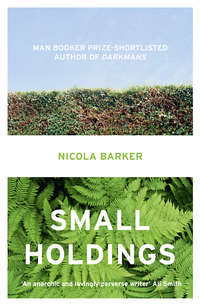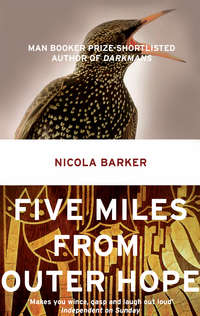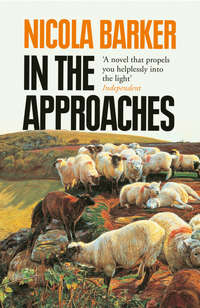
Полная версия
Behindlings
Wesley scowled. He would not take it. ‘What’s so funny?’
Ted’s mirth slowly evaporated. He stared intently at Wesley for a moment, struggling to tell if he was sincere. But he couldn’t tell. Wesley’s expression was completely unreadable. He was a human hieroglyphic.
‘This is her house,’ Ted said, finally. ‘She’s renting out the spare bedroom. Shared use of bathroom and kitchen facilities. I’m only handling it as a personal favour.’
‘Whose house?’ Wesley sounded perfectly innocent. Benign. Casual.
‘Whose house?’ he repeated, after a pause.
Ted pointed at the printed details: ‘This is Katherine Turpin’s house. This is the house of the local woman whose life you ruined.’
A short silence followed, punctuated, briefly, by Wesley’s stomach rumbling.
‘Blow me,’ Wesley finally expostulated (almost convincingly), ‘that’s some crazy coincidence. I suppose we’d better go and take a look, then, hadn’t we?’
He stood up. Ted didn’t move a muscle.
‘Take me there,’ Wesley ordered, reaching over to grab Ted’s jacket from the back of his chair, bundling it up into a compact ball, and throwing it at him.
‘You don’t know me…’ Josephine said, squeezing her way between the plastic bench and its table.
‘I don’t know you,’ Doc affirmed, not even looking up at her, but applying all his energy to dissolving the foam on his coffee by stirring at it vigorously with the back end of a knife. The foam wouldn’t dissolve though. Too dense. Too soapy.
He was occupying a window kiosk in the Wimpy. Dennis sat outside, tied to a lamppost, his snout pushed mournfully against the glass, his breath steaming up the window in small, cloudy patches.
‘My name’s Josephine,’ she said, sitting down.
‘Why all this foam?’ Doc muttered, not anticipating an answer.
‘That’s a cappuccino. I believe it’s prepared with frothy milk.’
Doc finally glanced up and inspected Josephine. He frowned slightly. He couldn’t pretend to understand this irritating modern phenomenon of girls who dressed like boys. Did it mean she hated men? Was she sexually deviant? Was she frigid? Was she frightened? Was she predatory? Either way, she made him feel old and alienated and uneasy.
‘Who made you an authority?’ he asked curtly.
Josephine didn’t respond at once. First, she picked up a napkin and neatly turned over each of its four comers –double-checking the sharpness of the fold, in each instance.
‘I’m hardly an authority,’ she murmured, unfolding the napkin again, smoothing it out with the flat of her palm and then shoving it away. Doc ignored her fidgetings. He occupied himself instead by staring out of the window and over the road towards the estate agency.
‘Do you think he’s only after information,’ Josephine queried, leaning forward, pushing both elbows onto the table, cupping her neat chin inside her two immaculately clean hands (her short, white nails thin as ten tight crescent moons; bright as albumen) and glancing over herself, ‘or do you reckon he might actually be planning to stay here awhile?’
Doc took a quick sip of his coffee. It was hot. He cursed under his breath and hastily put the cup down again.
‘I bought your dog a doughnut,’ Josephine said, indicating towards the paper bag she’d been holding, already dark with grease stains, ‘I hope you don’t mind.’
‘He’s diabetic,’ Doc growled, clumsily wiping away his foam moustache with the back of his hand and then staring, bemusedly, at the remaining slick of cocoa-splattered residue, like it was some kind of toxic extra-terrestrial slop.
‘A diabetic? Really?’
Doc –still refusing formal eye contact –gritted his teeth and then muttered gutturally through them, ‘I hardly think it’d be worth my while to lie about such a thing.’
‘No.’
Josephine frowned and leaned back, somewhat unnerved by Doc’s pugnacity. She grabbed hold of the offending bag, removed a doughnut from inside (glancing, guiltily, towards the service counter), then sat and stared at it.
‘It’s shaped like a man,’ she observed, biting off both of its arms in quick succession.
Doc didn’t respond. He was concentrating on the estate agency again. Inside he thought he could see Wesley standing up and throwing something. He roughly pushed his cup aside (the coffee pitched then spilled, still steaming, into its saucer), fastened a couple of buttons on his cardigan, grabbed his oilskin jacket from the bench beside him, and clambered to his feet.
But before he beat his hasty retreat, Doc paused –almost regretfully –shifting his weight heavily from his bad leg to his better leg like a small child anxiously queuing to collect his Good Conduct certificate at school assembly.
‘Look,’ he spoke quickly, his voice –Josephine noticed –fractionally less abrasive than it had been previously, ‘I’ve made it my business to follow Wesley for well over three and a half years now,’ Doc inadvertently clenched then unclenched his left fist as he spoke, testing the joints for any hint of arthritic stiffening, ‘and what I want you to understand…’ his bleary brown eyes were already focussing beyond Josephine, out of the window, over the road, ‘what I need you to understand is that for me this isn’t just a game or a hobby. It’s actually like a kind of…’ he paused, struggling, his eyes briefly flickering towards the ceiling, ‘a kind of pilgrimage.’
Still he wasn’t satisfied, ‘A way of life, if you will…’
He scowled, temporarily incapable of encompassing the complex landscape of his emotions verbally of fully encapsulating The Following and all its myriad implications.
‘I truly, fully appreciate the depth of your commitment,’ Josephine butted in, quickly snatching her opportunity, trying her utmost to sound sufficiently submissive, ‘I mean I know you’re quite the expert…’
‘There are some people,’ Doc rapidly continued, almost as if he hadn’t heard her, ‘who have Followed him even longer than I have, in terms of actual years, but none so intensively. There are many –especially since the big confectionery Loiter –who Follow him mostly at the weekends or perhaps for a day or two when they’re on holiday, and others who simply turn up, at the drop of a hat, whenever the fancy takes them. We call these people,’ Doc allowed himself a wry smile, ‘we call such people Fleas, because their… because their infestation is almost always very temporary.’
Josephine inspected her armless sundry –a rather unwieldy wodge of dough still tucked inside her cheek –all too fully aware of which horribly capricious category Doc had already slotted her into.
‘You see, to me, as yet,’ Doc observed, pushing home his point rather more blatantly than was necessary, ‘you are just another one of those people. Those Fleas. And while I would hate you to take this the wrong way, Josephine…’
(Her name. He’d remembered. He’d snatched it from the ether, quite arbitrarily.)
‘… I’d much prefer it if you’d refrain from questioning me or talking to me, bothering me or pestering me. Because any information I may have gathered is my information. I have worked for it. I have earned it. I use it as I see fit. I don’t…’ he thought hard about the word he needed, ‘disseminate. I do not disseminate it,’ he paused. ‘Well, I do, sometimes, but only when I want to, when I choose to,’ he smiled briskly (old teeth. Yellow teeth. Wonky). ‘I hope that settles things.’
The smile stopped (Doc turned it off in a flash –with a small click in his jaw –like the neat switch on a wall-socket) then he nodded abruptly and strode to the door.
Outside, Dennis dashed joyously forward until his elasticated leash stretched to capacity –like a horizontal bungee –and jerked him –ears flying, claws scrabbling comically –all the way back again.
Inside, Josephine grimaced, swallowed her cheekful of masticated doughnut, then savagely bit off the head from what remained of the torso.
‘You miserable old bugger,’ she muttered, her mouth still full, but a careful hand gently shielding it, for the sake of propriety. As she spoke, dark raspberry jam slowly oozed through one of the now-truncated armholes and trickled down stickily onto the front of her sweatshirt. She didn’t notice. Her wide hazel eyes were already swivelling, expertly, across the road, and fixing, hungrily, on the estate agency. There she saw the door swinging open, a blond man in a suit emerging, and just behind him, Wesley.
Four
The beautiful yet unspeakably wronged Katherine Turpin lived in a bungalow just off the Furtherwick Road; a prime, centrally located Canvey address which conveniently situated the property at an exact halfway point between the town centre and the beachfront. Ted might easily have shared these salient details with Wesley as they covered the short distance together –on foot –between the agency and the address, yet for some reason he refrained from doing so.
In fact he failed to communicate even the most perfunctory of observations during their journey (no mention of the weather –it was foggy but still dry –no reference to the purported length of Wesley’s stay –as yet, indeterminate –no discussion as to the quality of local amenities –uniformly high) preferring, instead, to maintain an unswervingly ruminative silence.
Wesley tried his utmost to breach it, but to no avail. Twice he reiterated a rather tedious enquiry about the opening hours of the local library and its location relative to the property under scrutiny. Twice his question was left hovering in the air like an undernourished kestrel hopelessly scouring the scant grass of a busy central reservation whilst being perilously buffeted by speeding heavy goods vehicles.
This relentless taciturnity was in no way intended to imply either indifference or any want of geniality on Ted’s part. He certainly meant no harm by it. He was simply in a temporary state of absolute moral panic. His mind was unsuccessfully engaged in a pitiful attempt to comprehend the various pernicious ethical permutations of his present situation: the countless obligations and commitments inherent in his role, his duty, as the honourable curator, the careful doorman, the kindly overseer of Katherine Turpin’s home.
But even while his mind strove to consider the endless tortuous ramifications of his present inadvisable course of action, he still managed to maintain an image of external composure by dint of persistently jangling a huge bunch of house keys in his free hand, and feeling –if only briefly –just slightly comforted by their hair-raisingly discordant metallic clatter (the other hand, meanwhile, supported a very snappy, imitation crocodile-skin briefcase, containing, Wesley suspected –and correctly –nothing more than Ted’s driving licence, a free handout about a carpet sale and two back copies of The Southend Gazette).
Perhaps, Ted pondered anxiously, this infamous Wesley truly was a bad man? But who the hell am I to judge? he countered modestly, shooting a sneaky sideways glance at him. Wesley did not have an especially bad face. His profile (already scarred –perhaps permanently –by the ongoing assault on his delicate senses from Ted’s relentless key-shaking) was nevertheless reassuringly unhawkish, his skin unpocked, his eyes unhooded. He seemed at once friendly and unaffected but hearteningly reined-in. He was surely no wild man.
Clever? Possibly. Smart? Never. Physically speaking he bordered on the unkempt. He was rangy and casual in his old, olive green corduroy trousers (so well-scuffed at the knee that the fabric’s corrugated indentations had been smoothed clean away), a terrifyingly plain –in Ted’s eyes –brown, roundnecked lambswool jumper, with a cheap, scruffy, tweed jacket thrown over the top.
Each of his pockets was ridiculously full. They bulged, uniformly, reminding Ted –in essence –of his old school gerbil, a creature so dedicated to storage that the fullness of his pouches often rendered spells inside his compact mouse-house or runs on his exercise wheel an absolute inviability.
Wesley did not even wear walking boots (as Ted might quite reasonably have anticipated of a man in his line of business), but instead sported an exceedingly dirty pair of ancient black Hi-Tecs, the laces of which were knotted, frayed and extended to only two thirds of the available holes.
He was a sorry sight, Ted decided, but he did have a pleasingly round face: gappy teeth, snub nose, keen but bloodshot (and strangely unfocussed) anchovy-paste eyes. He needed a shave. He looked like he’d never troubled to brush his hair in his life. To the front it seemed fine, but at the back it stood up in a sleepy ridge like a misshapen muddy-brown tidal-wave.
A confident woman with a good vocabulary might easily have described his appearance as ‘tousled’, but Ted couldn’t really find it in himself to be quite so articulate or so forgiving. He sniffed. Wesley smelled of old milk, dirty dishcloths and tobacco. The fruity kind.
‘Will she be home by any chance?’ Wesley wondered out loud as they finally turned into the driveway (at this late stage hardly anticipating a reaction).
‘No,’ an active, genial presence suddenly re-ignited inside Ted’s eyes, ‘she works.’
Wesley started, glanced over briefly towards Ted’s newly-inhabited profile, then nodded. He felt almost relieved. He was finding some difficulty in recalling the exact details of what it was that he’d written about Katherine Turpin in the book –although there was one thing of which he was absolutely certain: whatever he’d said, it must’ve been necessary.
He had an unshakable confidence in the multifarious decisions made on his behalf by his former selves. How could a fundamentally decent and honourable man ever really seriously regret his past actions? How pointless would that be? How lily-livered? How inconsistent? How slack?
‘She works,’ Ted reiterated, ‘growing beansprouts on a farm. But only part-time. I have a key.’
‘A beansprout farm?’ Wesley smiled caustically. ‘How unique.’
Ted didn’t respond. But he was deeply perturbed by Wesley’s tone. Beansprouts? He pondered quietly, jangling his keys with a renewed determination. Beansprouts? Unique?
It was a pretty little property. A white bungalow, satisfyingly angular, with a small, friendly picket fence to the front, directly backed by a staunch and rather less welcoming row of well-tended shoulder-high evergreens. The garden was covered in a neat red-brick parquet. The overall effect was private, stately, and quite exquisitely anal.
‘Grand,’ Wesley said, peering around him intently. Ted stood on the doormat, struggling to locate the correct key. Wesley glanced behind them. The Old Man was following.
‘You went to school here in Canvey, Ted?’ Wesley asked.
Ted nodded, ‘Furtherwick Park School. We just walked past it.’
‘And what about her? What about Katherine?’ Ted finally selected a key. ‘Yes. But she was two whole years older.’
‘Two whole years?’ Wesley grinned. ‘Was she beautiful?’
‘Not exactly,’ Ted’s cheeks flushed a sharp bullfinch pink as he turned towards the door and shoved the key into the lock.
Wesley had teeth like a pony. Indomitable teeth. Very gappy. Very square. Very strong.
‘Did you have a crush on her?’
‘Everybody liked her,’ Ted mumbled, ‘if that’s what you’re getting at.’
Wesley chuckled and then half-nodded his concurrence, although this was patently not what he’d intended by it at all.
He looked behind him again. The boy-woman had joined Murdoch on the opposite pavement. They stood a distance apart. Murdoch was holding a pager. He was tapping into it with his large, slightly arthritic middle finger. Wesley scowled. It seemed improbable that Doc should’ve already made the Katherine Turpin connection…
But if he had? Wesley’s jaw stiffened at the thought. This possibility plainly jarred him.
Ted turned the lock, pushed the door, removed the key and entered.
‘By the way,’ he said, laboriously wiping his feet on a second doormat inside, ‘I hope you don’t have a problem with rodents.’
Wesley paused on the threshold and inhaled deeply. ‘Sawdust…’ he murmured, and then, just a fraction more quizzically, ‘brandy…?’
‘She keeps chinchillas,’ Ted explained, ‘in the lean-to behind the kitchen. I should’ve mentioned that back at the office.’
The bungalow’s interior belied the neatness of its exterior. Where outside all had been cleanliness and order, inside, all was mess and mayhem.
‘This woman is a slut,’ Wesley observed, stepping carefully over the doormat and calmly appraising the state of the hallway. ‘Perhaps you should’ve specified that back at the office.’
‘She’s an artist,’ Ted countered primly, slamming the door shut and then shoving a group of carrier bags up closer to the wall so that they could proceed unhindered. The bags clanked and tinkled. Wesley frowned. ‘What kind?’ he asked, bending over to peer inside one of them (it contained seven empty peach schnapps bottles). ‘A piss artist?’
Ted merely growled, but not fiercely. It was the subterranean grumble of an old labrador in the middle of having his toenails clipped: sullen, irritable, mutinous even, but nothing serious. He led Wesley through a half-stripped pine door and into the living room.
‘Jeepers,’ Wesley immediately exclaimed, pushing a thumb down the neck of his jumper and yanking it outwards, ‘it’s tropical in here.’
He rotated his head with a quite startling, hawk-like facility, ‘Does this woman have a different biological classification from the rest of us, Ted? Is she amphibian?’
Ted didn’t bother responding. Instead he busied himself plumping up a couple of pillows on the sofa, minutely adjusting the stained antique embroidered throw on a chair.
‘I’ll certainly be keeping my eyes peeled,’ Wesley continued, affecting an air of intense paranoia, ‘for any suspicious grey scales on the bathroom floor… reinforced glass walls…’ (he performed a dramatic trapped-forever-behind-a-glass-wall mime), ‘those pathetic part-digested insect husks… the give-away imitation jungle-look paper back-drop…’
Ted carefully placed the second pillow back down onto the sofa. ‘Underfloor heating,’ he acquiesced stiffly. ‘Costly to run but extremely effective.’
‘Wow,’ Wesley crouched down and touched one of the shiny black tiles with his fingers. It was warm. He kicked off his trainers and planted his stockinged feet firmly onto the floor.
‘Oh I like it,’ he said, ‘this is wonderful. My toes have been numb since the New Year. I took a quick dip off Camber Sands for a bet. The sea was absolutely fucking freezing.’
‘Your socks are steaming,’ Ted frowned fastidiously.
‘Damp,’ Wesley smiled, moving around a little and enjoying the dark prints his feet elicited. While Ted watched on, he silently heel-toed a design onto the floor. A bad circle. A lop-sided splodge.
‘So if that’s Canvey,’ he indicated towards the shape with a wide gesture of his arm, ‘North… South… East… where would you say we are now, exactly?’
‘Uh…’ Ted walked to the southern-most tip, then marginally to the east of it, ‘about there,’ he said, ‘approximately.’
‘Where?’
Ted crouched down. ‘About…’ he pointed, ‘although the industrial headland actually forms a slightly more exaggerated…’
He looked up. Wesley was no longer paying him any attention. He was peering around the room, absorbedly.
It was a large room; hot, yet airy. There was a bay window to the front swathed in heavy nets, but what remained of the watery Canvey sun still glimmered through in fine, silvery trickles. The room was crammed with stuff in industrial quantities. Every available surface was covered in practical detritus: glue, wire, beads, bags of sand…
Behind a huge, ancient, tiger-skin draped sofa (the big cat with its whole head still intact, eyes, teeth, everything) stood a workbench covered in a large mound of yellow-white, fibrous objects. Wesley moved towards them, ‘What are these?’
Ted clambered to his feet again.
‘Stones.’
Wesley picked one up. It was the approximate size and weight of a large mouse after a steam-rollering accident.
‘From a mango,’ Ted expanded, ‘the furry stone from the middle of a mango.’
‘Mango stones. Ah.’
Wesley stared at the stone closely.
‘She gets them in bulk. I believe she has some kind of deal with a juice manufacturer in Kent…’
Ted was still speaking as the doorbell sounded. He jumped, guiltily, turning automatically towards the hallway.
‘Hang on a minute,’ Wesley moved over to the window and peered out from between the nets. After a couple of seconds he grunted, swatted a dismissive hand through the air and returned to the workbench. ‘Relax,’ he muttered, ‘it’s nothing.’
‘Why? Who is it?’
Wesley picked up another mango stone. ‘Nobody, just some kid who follows me.’
The doorbell rang again, rather more insistently.
This time Ted went to the window and peered out.
‘If he sees you looking he’ll come over,’ Wesley warned him, putting the mango stone up to his nose, inhaling. It smelled of old hay. Of wheat. Of corn dollies.
‘Damn,’ Ted quickly withdrew, ‘I think he did see me…’
Sure enough, after a few seconds, the window was darkened by a small shadow, then a nose –pushed up hard against the glass –with two inquisitive hands pressed either side of it.
‘Gracious,’ Ted murmured, backing off still further, ‘you weren’t kidding.’
‘Just ignore him,’ Wesley counselled boredly, ‘he’ll go away eventually.’
‘Who is he?’ Ted was mesmerised.
‘I already told you. Some kid.’
The right shadow-hand suddenly peeled itself away from the glass, formed itself into a tight fist, and began knocking. ‘How do you know him?’ Ted whispered.
‘I don’t,’ Wesley shrugged, ‘he just follows me around.
’ ‘What’s his name?’
‘Pete. Patty. I can’t remember.’
The knocking continued. It was loud and persistent yet maddeningly unrhythmical. After thirty seconds it grew mildly irritating, by fifty it was unbearable.
‘I think he might be stepping on Katherine’s hydrangea,’ Ted stuttered.
‘Then go out and yell at him.’
‘Should I?’ Ted looked appalled at the thought. ‘Will he become aggressive?’
Wesley chuckled, ‘No. He’ll love it. He’ll lap it up. He’ll interrogate you. He’ll molest you. He’ll bend your ear. That’s all.’
Ted didn’t move. ‘For some reason,’ he said, ‘that banging’s really… it’s making me… I think it’s just the… I think it’s the irregularity or something.’
‘Calm down. He’ll tire soon enough.’
As if on cue, the knocking abated.
‘Thank God,’ Ted shuddered, yanking his tie askew, his professional veneer denting like the tender skin of a ripe nectarine.
‘Come over here for a minute,’ Wesley commanded (the very image of icy unperturbedness), ‘and fill me in properly on these mango things.’
Ted joined Wesley at the workbench. Wesley idly noticed that his forehead was glistening. He was sweating.
‘She makes these strange little creatures out of them…’ Ted said, fishing around inside his jacket pocket for a handkerchief, pulling one out and patting his brow with it.
He glanced around him, ‘Here…’
He moved to a set of shelves behind the TV and picked something up, but before he could bring it back over, a loud discussion commenced next to the window, where the small, intrusive boy had now been joined by a second, much larger figure.
Ted froze. Wesley observed his reaction but said nothing, simply shrugged and then silently pushed his index finger into a soft heap of sand on the workbench. He made gentle, circular patterns with it, watching raptly as the fine granules flattened and dispersed. Ted remained glued to his spot by the bookshelves, anxiously rubbing his right palm onto his opposite elbow, listening apprehensively.







